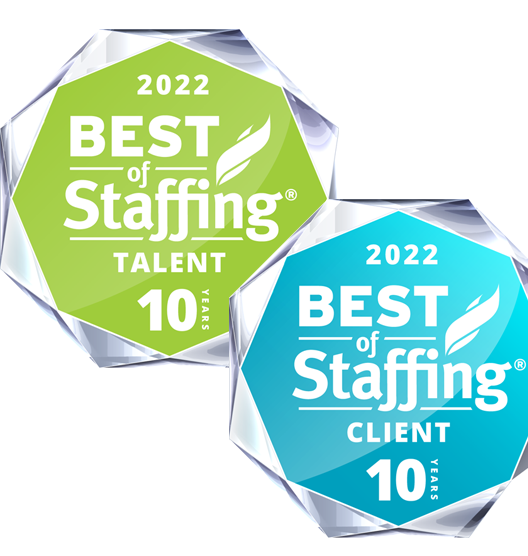|
Career Management Strategies for Soon-to-be-Graduates
By: Martin Yate CPC
|
|
Spring break will be here next month which means graduation and a first job search will be close behind. Competition for jobs is tougher than ever, and an expensive degree does not necessarily equal a great job offer. Procrastinating or taking a lackadaisical approach to job search just won't cut it if you expect to launch a successful career. Take charge of your financial future by laying a strong foundation now. Here are six career management strategies soon-to-be graduates can begin using today. 1. Use Career Services Career Services (CS) staff are overworked, so you must make the approach and convince them that you're committed to getting your act together. At your appointment, explain your major, the job and profession you want to work in, and the area of the country you want to work in, then ask for research resources to identify employers in your target location relevant to your target job and profession. If you don't have a focus on these issues, CS can help you think them through and get you started on creating your resume. 2. Join your alumni association Join your alumni association. The big benefit at this point in your career is the alumni database that will list thousands of professionals working at all levels in your chosen profession with whom you can network for advice, leads, and introductions. Call or email and introduce yourself. Tell your fellow alumni that you're following in their footsteps and that you need some advice. Ask what it takes to become successful in the profession. What did he or she do to get that first foot on the ladder of success? Who could you speak to about entry-level opportunities? What can you do in return? Then follow up on the advice and send a thank you note. 3. Develop strong, relevant professional networks You may be a pro at using Facebook and Twitter, but social networking is a different beast when you're using it for professional purposes. A strong first step is to establish the new "professional you" on the world's premier professional networking site. Set up a LinkedIn.com account, fill out your profile to become visible, and join discussion groups relevant to your target profession. Ask questions that will help you understand what it takes to become successful; which are good companies to work for; why people fail; and the biggest mistakes entry-level people make. Questions like these will help you gain visibility with recruiters and hiring managers who frequent the same groups looking for entry-level talent. 4. Scrub your online reputation Corporate recruiters constantly source social networking sites to identify likely candidates, and also to gain greater insight into candidates they have already identified. So it's time to clean up all your social networking profiles and remove any once-funny photographs or controversial posts. Nothing is private on the Internet, and many of those cherished spring break photos will be seen as inappropriate by recruiters and can cost you job offers. Besides, they have no place in creating the right image for the young professional you wish to become in the next phase of your life. 5. Connect to the inner circle of your profession Join the local chapter of a professional association in your target job market and attend meetings whenever you can. You will get to know and be known by the best connected and most committed people in your profession within your target geography. The research resource you need is the Encyclopedia of Associations, available at your research library or online. 6. Execute your plan of attack From your research, identify 100 potential employers. Visit their websites, build dossiers on each, then use your LinkedIn groups, alumni, other social networks and professional association memberships to connect with professionals who work for, or have worked for, your target companies. You especially want to find people who currently hold the job title you are seeking, and people who hold job titles one, two, and three levels above your own, because these are the people most likely to know of job openings and be in a position to hire you. 7. Learn all you can about job search and career management The average career is about half a century; we change jobs about every 4+ years; and we change careers at least three times. The only professional constants any of us have are change. Just as a car is useless without a steering wheel, you need a guidance system that will enable you to navigate through all the twists and turns of a fifty-year career. An ex-Silicon Valley headhunter & HR Director of a publicly traded storage company, N.Y. Times bestseller, Martin Yate CPC, brings a lifetime of street-wise career management experience to his work. The Knock Em Dead career management books unfold a new and unique approach to getting what you want out of life rather than becoming a powerless drone trapped in some high-rise salt mine. With 17 career-management books collectively published in 81 domestic and 63 foreign language editions, he is increasingly thought of as the father of the new career management. Perceptive, direct and witty, you can join Martin here to change the trajectory of your life forever. As Dun & Bradstreet says, "He's just about the best in the business." Knockemdead.com delivers exemplary resume and coaching services and encourages affiliate relationships with professional colleagues. |
|
resource center
The Watercooler Blog
Get workplace tips and trends related to employee retention, engagement, interviewing and more.
Fill 'er up
Top 0.5% in America!
PrideStaff has earned ClearlyRated's Best of Staffing Client and Talent 10-Year Diamond Awards for 3+ years. Less than 0.5% of all staffing firms receive this level of achievement.
See all our awards




